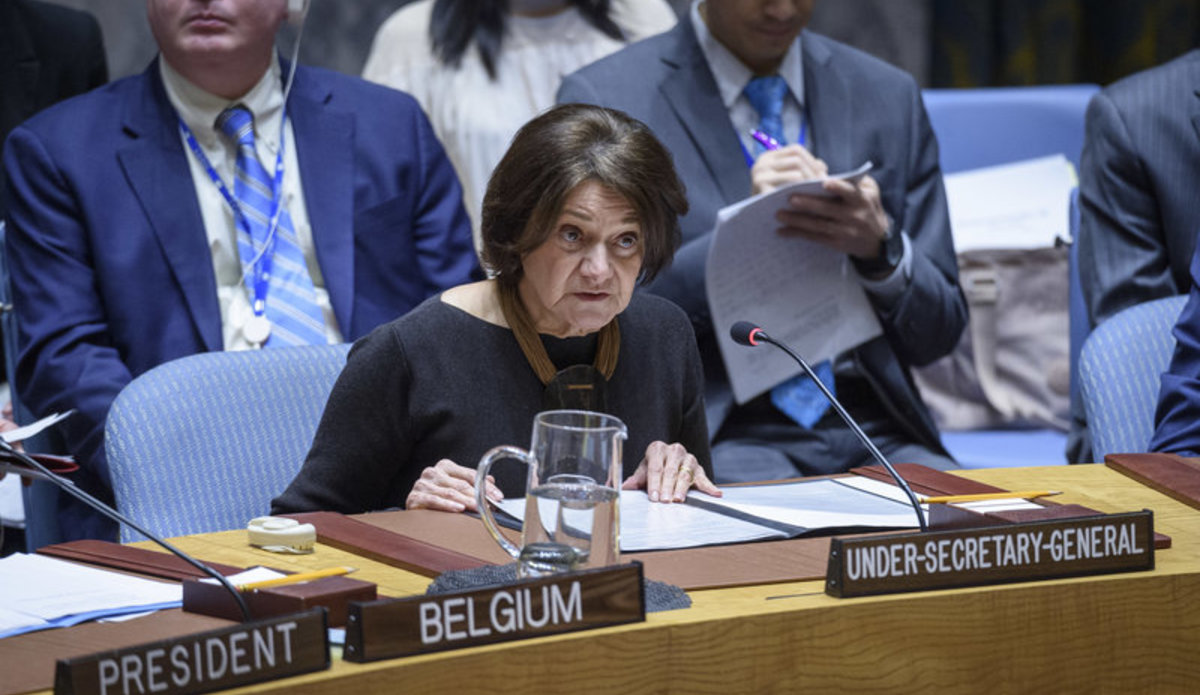Thank you, Mr. President,
I commend the Peoples’ Republic of China for organizing this important meeting.
Today, Africa is moving forward with its own agenda of progress, peace and prosperity. Across the continent, countries are growing and addressing complex structural challenges, in line with the African Union’s Agenda 2063.
Civil society, communities and governments are working together as never before.
The United Nations is fully committed to supporting these efforts, and important progress has already been made in implementing the Joint UN-AU Framework for Enhanced Partnership in Peace and Security, and the AU-UN Framework on Implementation of Agenda 2063 and Agenda 2030.
However, the continent continues to face vulnerabilities that threaten its peace and security, hinder its economic development and undermine human rights and the rule of law.
Mr. President,
Among those threats is that of terrorism and violent extremism, which continues to grow in various parts of the continent, despite our efforts to prevent and counter it at the national, regional and international levels.
Al-Shabaab continues to pose the most persistent threat to security in Somalia and East Africa despite the intensified military operations against it in recent years.
ISIL and Al-Qaida affiliates are collaborating with each other to undertake increasingly sophisticated attacks in West Africa, especially in Burkina Faso, Mali and Niger.
ISIL also continues to operate in Libya despite recent setbacks, and it is restructuring and empowering its affiliates in Eastern, Southern and Central Africa.
In the Sahel and the Lake Chad Basin, the Islamic State in the Greater Sahara, Boko Haram and its splinter faction the Islamic State’s West Africa Province, continue to terrorize local populations and attack security forces.
I would like to take this opportunity to remember the tens of thousands of African victims of terrorism, and to express my solidarity with the affected governments and people. Terrorism causes deep, lasting scars, and victims and survivors need not only protection but a chance to heal through justice and support for rebuilding their lives.
We know that women bear a disproportionate burden of this violence, including through sexual slavery. Just as misogyny is at the heart of so many terrorist groups’ strategies, so must women be at the centre of our responses.
Mr. President,
The High-Level regional conference on preventing and countering violent extremism, which the United Nations co-organized with the Government of Kenya in Nairobi last July has reinvigorated our common efforts to understand and address terrorism in Africa.
As the Secretary-General has stated, we cannot address terrorism without addressing underlying factors. The threat of terrorism is often a consequence of development, humanitarian, human rights and security challenges that terrorist groups seek to exploit. Security and military solutions are thus not sufficient.
We must address poverty, weak governance, intercommunal tensions, gender inequality, youth unemployment, illicit activities such as trafficking in weapons and people, and the use of new technologies and social media to recruit, inflame and incite.
We also need to better understand the specific threat and priority needs of each country and sub-region. There is no “one-size-fits-all” solution; comprehensive and inclusive “all-of-government” and “all-of-society” approaches are essential.
As terrorism has no borders, preventing and combatting it requires strong multilateral cooperation. The United Nations remains committed to bringing Member States together to share counter-terrorism best practices, expertise and resources.
The United Nations is working closely with African organizations and Member States to promote a comprehensive and balanced implementation of the Global Counter-Terrorism Strategy.
We supported the development of regional counter-terrorism strategies in the Sahel, Central and Southern Africa, and we are supporting the implementation of the strategy adopted by the Intergovernmental Authority on Development for the Horn of Africa and Tanzania.
Further to requests from Member States, we are supporting African-led and African-owned initiatives in priority thematic areas, including protecting vulnerable targets; countering terrorists’ travel; developing coordination mechanisms for law enforcement; enhancing the capacity of Member States to investigate and prevent cyber-attacks; engaging with parliamentarians to implement relevant counter-terrorism obligations; and promoting south-south cooperation and respect for human rights and the rule of law.
Mr. President,
We cannot overemphasize the importance of support to the G-5 Sahel Force, which can play a critical role in combating terrorism, especially in the three border areas of Mali, Niger and Burkina Faso. The Pau Summit of January, convened by President Emmanuel Macron, put forward an enhanced and focused strategy that could significantly reduce the terrorist threat. I reiterate the Secretary-General’s call for the international community to provide strong support for the efforts of the G5 Sahel.
Mr. President
Terrorism is an evolving and pervasive multi-dimensional threat.
I encourage Member States and other partners to take advantage of the upcoming review of the UN Global Counter-Terrorism Strategy and the United Nations Counter-Terrorism week, to strengthen our efforts and partnerships.
Thank you, Mr. President.

